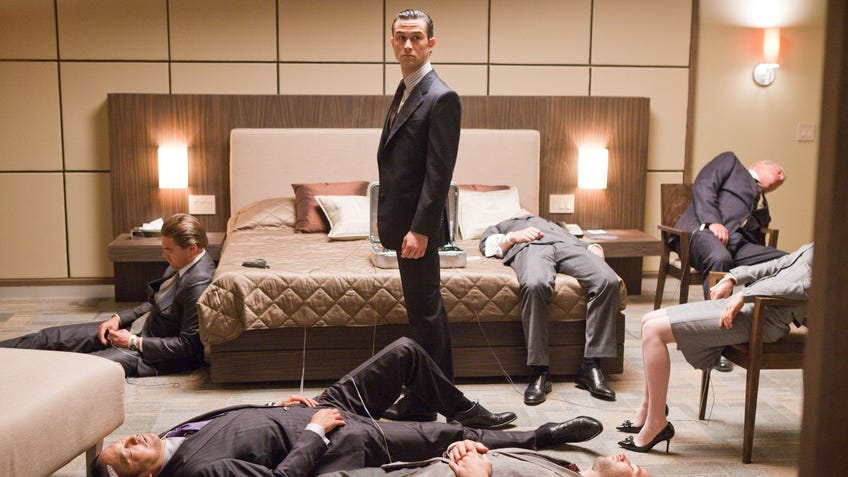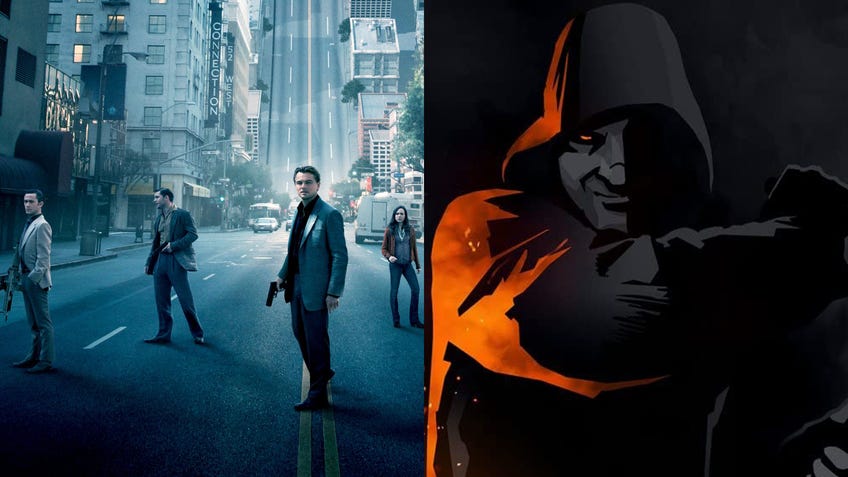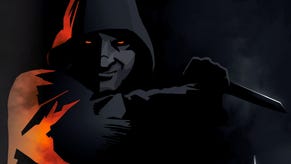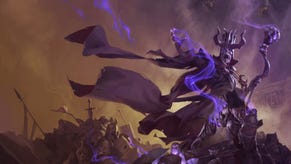An Inception version of Blades in the Dark would be a dream collaborative RPG
It’s time to bring the franchise out of limbo.
I travelled about three hours just to see Inception at the cinema the other day. Whilst I didn’t anticipate that the journey would take quite that long, it was still worth it.
For those who may not have seen it, Inception is a film about a crew of professionals who attempt to ‘break into’ a person’s mind in order to plant an idea. The story of Inception is notoriously hard to summarise to people who haven’t seen it, because its premise requires a lot of suspension of disbelief. But the best way to grasp Inception is that it’s a heist movie that takes place in another dimension - one that happens to be within someone’s mind.
The heist movie structure and cast of characters with recognisable tropes provides a solid enough foundation, one that ensures viewers can choose how deep they’re willing to read into Inception. Watching the Christopher Nolan film can be as complicated as debating the nature of the subconscious, to being as simple as enjoying a fast-paced, well-choreographed action flick.

It’s this mixture of a solid foundation and complex worldbuilding that would make Inception work well as a tabletop roleplaying game. The heist formula of Inception would lend itself incredibly well to a gameplay system like John Harper’s Blades in the Dark, largely thanks to the fact that it is designed to simulate heist narratives. Rather than having players sneak around a steampunk city populated by ghosts, an Inception RPG could see players infiltrating the even stranger landscape of people’s minds.
The unpredictable nature of the human mind would ensure that a flashback mechanic would be invaluable during an Inception-esque heist.
Blades in the Dark has players carefully plan out their heists by conducting research, connecting with important contacts, purchasing tools and devising a strategy for getting in and out of a location. Like many heists, the preparation phase in Blades is as important as carrying out the actual job itself. In similar fashion, a large chunk of Inception’s plot revolves around Dominic Cobb, played by Leonard DiCaprio, assembling his team, acquiring funding, supervising each crewmember’s work and putting safeguards in place in anticipation of possible hazards: namely his subconscious’ dangerous projection of his late wife.
Each member of the crew in Inception serves a core role in the team – whether that’s Ariadne (Elliot Page) as the architect building the dreamscapes, Eames (Tom Hardy) as the smooth-talking face of the operation or Yuseef (Dileep Roa) as the chemist in charge of crafting the sleeping formula required to keep the victim and the crew asleep. Blades in the Dark features roles for players to craft their characters around, such as the Spider pulling all the right strings or the Leech’s saboteur specialist. How these roles function as a character creation and gameplay tool could combine nicely with the character archetypes found in Inception, with players able to choose from loose versions of the film’s crewmembers.
During the actual heist, Blades in the Dark enables players to employ a flashback-esque mechanic that allows them to imagine their character previously preparing to sidestep a potential obstacle. Though in limited supply, flashbacks in Blades in the Dark are particularly effective at overcoming otherwise overwhelming odds that would spell the end of any heist, no matter the crew or the plan.
The crew in Inception face mounting odds due to numerous unexpected obstacles they encounter during their mind-heist, from a runaway freight train to an army of subconscious mercenaries. The at-times unpredictable nature of the human mind would ensure that a flashback mechanic would be invaluable during an Inception-esque heist, enabling players to quickly react to any strange goings-on they might experience within a person’s subconscious.
A tabletop roleplaying game could allow players to dive into the world of Inception themselves, dreaming up their own stories.
What’s more is that the fluid and almost supernatural nature of Blades’ flashback mechanic – with players suddenly dreaming up a solution to a problem – would fit into the world of Inception like a glove, considering that its characters regularly manifest useful items and shape their environment whilst inside a dream.

Though Inception contains its fair share of exposition, with entire scenes dedicated to explaining how dreams and the subconscious work within its world, there’s is still wealth of ideas, stories and characters left to be explored. As a film, Inception is smart to be so laser-focused on the story of Cobb and his crewmates - considering that any further exploration of its world could have resulted in a much messier and less concise narrative. But a tabletop roleplaying game could allow players to dive into the world of Inception themselves, dreaming up their own stories and constructing their own ideas as to how it all works.
Considering that Forged in the Dark, the gameplay system behind Blades in the Dark, is an open-licence gameplay system – meaning that designers don’t need to license it to use it – an Inception TRPG version of Blades in the Dark should be a slam-dunk, if only Nolan and the relevant production companies pulled the right strings. For now, it remains just a dream.







